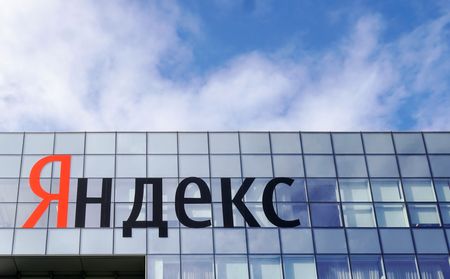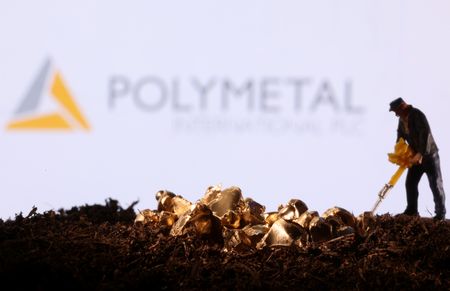 1
1 1
1


By Danilo Masoni, Bansari Mayur Kamdar and Medha Singh
(Reuters) – Shares of Russia-exposed companies took a beating across U.S. and European markets on Thursday, after the country’s move to launch a full-scale invasion of Ukraine fuelled fears of tougher Western sanctions.
U.S.-listed shares of Russian internet giant Yandex N.V. lost half their value, while companies with operations in Russia such as payment services provider QIWI plc and e-commerce platform Ozon Holdings slumped 17% and 38%, respectively.
“Stocks exposed to Russia are falling because people are worried that these companies may be taken off Nasdaq or may not be allowed to sell their products in the developed world as a punishment,” said Kim Forrest, chief investment officer at Bokeh Capital Partners in Pittsburgh.
The White House earlier this month warned the U.S. chip industry to be ready for new restrictions on exports to Russia in case of a war.
The Philadelphia chip index was down 2.2%. Ukraine supplies more than 90% of U.S. semiconductor-grade neon, critical for lasers used in chipmaking, while Russia is the source of 35% of the palladium used in the country.
Among the hardest hit in Europe were shares of London-listed miners Polymetal and Evraz, banks Raiffeisen and OTP, Polish clothing company LPP and German energy trader Uniper. Their shares were down between 15% and 45%.
London-listed shares of Russia’s two biggest companies by market value, Sberbank and Gazprom, fell 74.6% and 37.9%, respectively.
France’s Renault, which controls Russian carmaker Avtovaz, fell 9.3%.
The broader European stock market fell 3.4% while S&P 500 dropped 2.0%. [MKTS/GLOB]
U.S. President Joe Biden and European Union foreign affairs chief Josep Borrell promised new sanctions, with the U.S. president adding he would be meeting early on Thursday with G7 leaders.
Biden, who orchestrated an initial round of Western sanctions this week against Russian oligarchs, financial institutions and exports, had made clear Moscow would pay a steeper price for continued aggression.
(Reporting by Danilo Masoni in Milan and Bansari Mayur Kamdar and Medha Singh in Bengaluru; Editing by Krishna Chandra Eluri and Anil D’Silva)